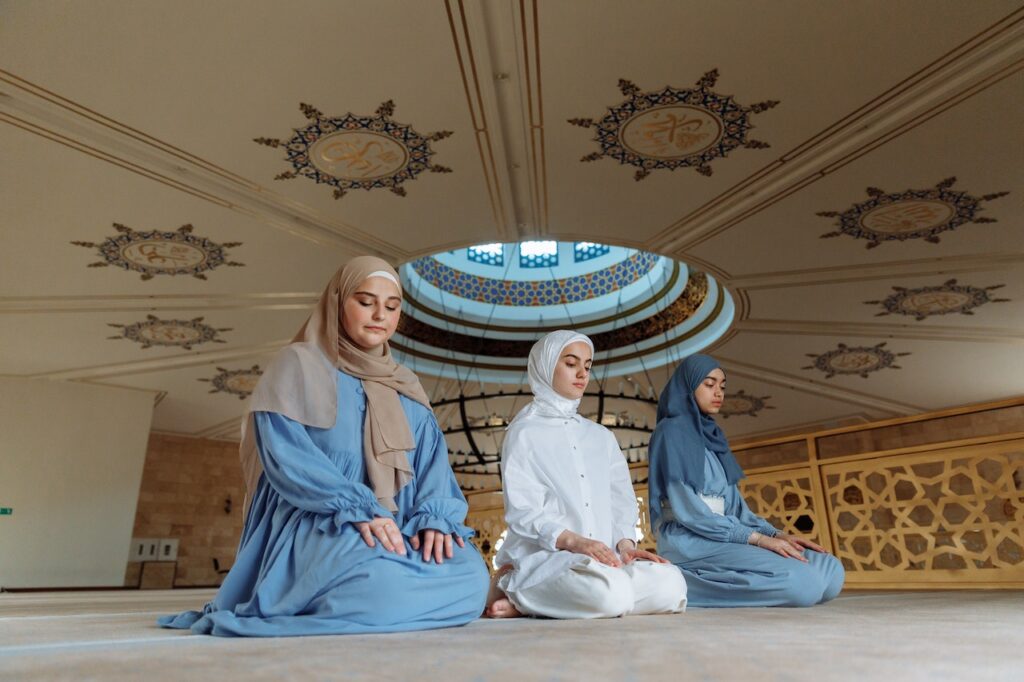U.S. SUPREME COURT CONSIDERS UNDUE HARDSHIP STANDARD FOR RELIGIOUS ACCOMMODATIONS
On April 18th, the United States Supreme Court heard oral arguments in Groff v. DeJoy, a case in which the central question is what does undue hardship mean for religious accommodation in the workplace. Historically, the Equal Employment Opportunity Commission (EEOC) and courts have applied the de minimis standard to religious accommodation claims. However, if the Supreme Court adopts the standard argued by Groff, employers will have a higher standard of undue hardship to meet.
Title VII and Religious Accommodation
Title VII of the Civil Rights Act of 1964, as amended, prohibits discrimination on the basis of religion as well as other protected categories. That includes reasonably accommodating religious observances and practices provided doing so would not be an undue hardship on the business. A little more than a decade later, the Supreme Court set the standard for undue hardship for religious accommodation that has been in place for almost 50 years.
In Trans World Airlines v. Hardison, 432 U.S. 63 (1977), the Supreme Court held that the standard for assessing whether a religious accommodation is an undue hardship on the employer is whether it would require an employer “to bear more than a de minimis cost.” Current guidance from the EEOC further elaborates on what that means.
According to the EEOC, factors to consider include the identifiable cost in relation to the size and operating costs of the employer and the number of individuals who will need a particular accommodation. Further, the EEOC notes that costs include not only direct monetary costs but also the burden on the conduct of the employer’s business including diminishing efficiency of other jobs, infringing on other employees’ job rights or benefits, impairing workplace safety, or causing coworkers to carry the accommodated employee’s share of potentially hazardous or burdensome work.
This standard is very different than the standard under the Americans with Disabilities Act (ADA) for undue hardship for disability accommodations.



ADA and Disability Accommodation
The ADA prohibits discrimination against individuals with disabilities in employment, transportation, public accommodations, communications, and access to government programs and services. Title I of the ADA specifically addresses those protections related to employment.
The ADA requires an employer to provide reasonable accommodation to qualified individuals with disabilities provided that the accommodation would not cause an undue hardship on the employer. Undue hardship for a disability accommodation would require a showing that the accommodation would cause a significant difficulty or expense.
According to current guidance from the EEOC, factors to consider would include the nature and cost of the accommodation needed, the overall financial resources, size, number of employees, and type and location of facilities of the employer, the type of operations of the employer, and the impact of the accommodation on the operation of the facility. However, negative opinions by customers or employees regarding an individual’s disability or negative impact on morale of other employees are not sufficient to claim undue hardship.
What is Groff v. DeJoy About?
The plaintiff, Gerald Groff, was an employee of the United States Postal Service (USPS) in rural Pennsylvania. Groff is a devout Christian whose religion requires him to honor the Sabbath and refrain from working on Sundays. When Groff began working for USPS in 2012, he was not required to work Sundays. However, when USPS entered into a contract with Amazon in 2013, postal carriers began making Sunday deliveries.
USPS attempted to accommodate Groff’s request to not work on Sundays — including transfer to another branch that didn’t require Sunday delivery initially and coverage of the Sunday shift by other employees when it did. According to USPS, these Sunday absences led to resentment and morale problems when other USPS employees had to pick up the extra work. Ultimately, the accommodations that had been put into place became unavailable. When no reasonable accommodation was available, Groff was scheduled for Sunday shifts. When he failed to report for those shifts, he was disciplined. Groff eventually resigned and filed suit against USPS for failing to accommodate his religious practices.
The case eventually made its way to the U.S. Court of Appeals for the Third Circuit (Third Circuit), which using the de minimis standard ruled that exempting Groff from working on Sundays was an undue hardship because it imposed “more than a de minimis cost… because it actually imposed on his coworkers, disrupted the workplace and workflow, and diminished employee morale.” The case was appealed to the Supreme Court.
Groff is asking the Supreme Court to reject the de minimis standard and implement the higher substantial difficulty or expense standard found under the ADA. Based on the oral arguments, it appears that at least some of the justices are open to such a change.
A decision in Groff v. DeJoy is expected sometime this summer. Employers who are concerned about a potential change in this standard should ensure that any denials of religious accommodations based on undue hardship are supported by documentation showing the financial and operational impacts of granting the accommodation.
NAE will continue to monitor this case, and others like it, to ensure employers have the latest and most up-to-date information regarding their rights and obligations. Join our email distribution list to ensure you do not miss the latest information from NAE.
Mailing List Sign Up Form
Fill out this mailing list sign up form to receive monthly email updates on the latest NAE news, HR issues, special events, training dates and more!
